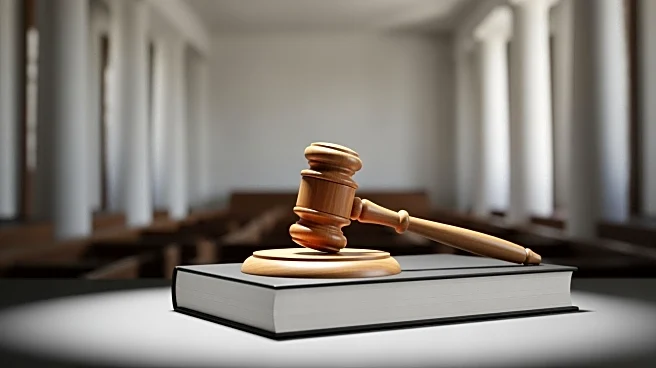What's Happening?
The Supreme Court's ethics code, released two years ago, is under scrutiny for lacking an enforcement mechanism. Fix the Court, an organization focused on judicial transparency, has highlighted this deficiency
as a major issue in the justices' ethical policies and practices. Despite the existence of the code, there has been no update on whether the Court has conducted an examination of best practices in judicial ethics, as initially implied. The organization suggests that Chief Justice Roberts could appoint a committee of respected judges to review complaints and recommend remedial steps, such as recusal or ethics training.
Why It's Important?
The absence of an enforcement mechanism in the Supreme Court's ethics code raises concerns about accountability and transparency within the highest court in the United States. This issue is significant as it affects public trust in the judiciary and its ability to self-regulate. Without a system to enforce ethical standards, there is a risk of unchecked behavior that could undermine the integrity of the Court. The call for a committee to oversee ethical practices suggests a need for structural changes to ensure that justices adhere to ethical guidelines, which is crucial for maintaining the credibility of the judicial system.
What's Next?
There is potential for Chief Justice Roberts to take action by appointing a committee to address the enforcement of ethical standards. This could lead to a more structured approach to handling complaints and ensuring compliance with the ethics code. The discussion around judicial ethics may prompt further debate and possibly legislative action to establish a formal enforcement mechanism. Stakeholders, including legal experts and advocacy groups, are likely to continue pushing for reforms to enhance transparency and accountability within the Supreme Court.
Beyond the Headlines
The lack of enforcement in the Supreme Court's ethics code could have long-term implications for the judicial system. It highlights the challenges of self-regulation and the need for external oversight to ensure ethical conduct. This situation may also influence public perception of the judiciary and its role in upholding justice. The debate over judicial ethics could lead to broader discussions about the balance between judicial independence and accountability.










